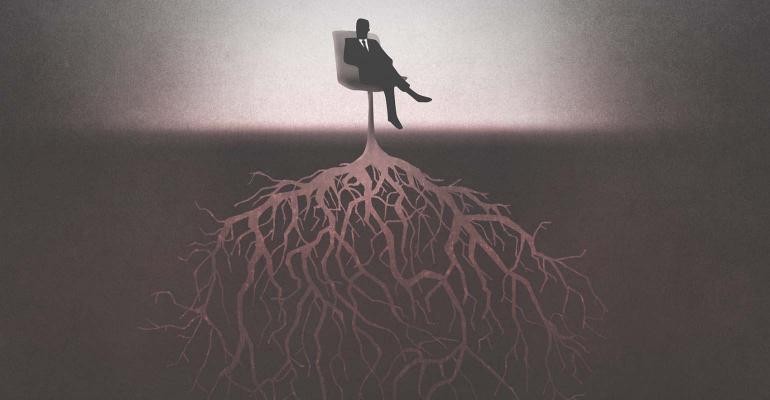In my last two columns, I’ve talked about building your brand and the importance of giving back. Much of that was in the context of how you can stand out as a next-generation financial planner, whether you have your own firm or work as part of a team. Now it’s time to talk about how you can build a sustainable career.
What is a sustainable career? Generally, it’s a career that will last throughout your whole work life. It is aligned with your strengths, interests and values. It is a career that grows with you, and makes effective use of your skills and experience. Importantly, it has meaning to you and offers continued learning and renewal. A sustainable career lets you stay employable, happy and productive at each stage of your life. Sounds perfect, right?
How to Build a Sustainable Career
One of the first hurdles to master is owning the mindset that you are in charge of your career. No one else. Not your manager, not the firm owner, not the board of directors. So, it’s important that you know yourself. There was a reason we started with exercises to help you define who you are as you build out your brand. Not knowing who you are, what you stand for and who you want to work with can prevent you from finding the right opportunities to build a long- term career.
Know Your Story
Knowing what makes you tick is key to building a long-term career. The more we understand ourselves, what makes us unique and what invigorates us, the more power we have to build a sustainable career. Your story is the summary of your passion, strengths and goals. It’s your personal “why.” You may still be developing your story – and it will evolve over time. If you aren’t yet sure, you may wish to do an exercise in self-assessment, like a Clifton StrengthsFinder or DISC. Knowing yourself goes a long way to helping you build out your perfect career.
Be a Sponge—Practice Continuous Learning
Continuing education credits are necessary to stay relevant, but branch beyond just what is required. What skills will you need to help your clients 10 years in the future? Will it be helping them fund education or retirement? Or taking them on the journey to revamp their own careers and redefine how they see retirement. Do you expect to provide expertise on digital assets? What type of legacy and tax planning will your clients need? What will your business need to grow? Do you have the right strategies in place to scale for the clients of the future? What do you envision financial planning to look like in 20 years? What does your idea team look like? Exploring answers to questions like these puts you in a mindset to always be looking forward. You’ll begin to pick up on future trends and start to think about how they will affect your career.
Know Your Value
Hopefully, you spent some time at the end of the year and reviewed your accomplishments. If you found this arduous, make a plan for the new year to spend 5–10 minutes each week documenting what you did and how you felt about it. What made you proud? Were there tasks that you were uncomfortable with? What feedback did you get and what have you learned from that? This is a wonderful opportunity to build self-awareness and will start a robust collection of facts you can link to your career growth. Share these with your manager to show your worth and to build out your career aspirations. Make sure to share with your mentor as you look for opportunities to build on your value. If there are misalignments with your values, now is the time to explore whether these challenges are short term and can be brought into alignment, or whether there is a larger issue to focus on. You want to make sure your career brings significance to you as well.
Do Work That Empowers You
Work with people who energize you. As a financial planner, you are lucky—not only can you get energy from working with smart, curious teammates, you have the opportunity to collaborate with clients who motivate you to work for their best outcomes. We all know that feeling we get when we aren’t “working,” but we are in a state of flow. We feel vital and are empowered to perform at our best. When work becomes your passion, it ceases to feel like work. Learn how to show how this passion adds value to your firm or business.
Embrace the Future
The job you have now will be different in five years. What new developments will cause your business to change or to have new clients or service offerings?
You will be different in five years. What will your dream career look like then? Will you own your firm? Will you shift priorities for a more balanced life with your family? When will you start the planning needed to get ready for the next chapters in your career and life?
Looking to the future is key to a sustainable career. Different perspectives are also necessary to ensure your career sustainability. I know you hate to hear it, but networking is one of the best ways to get new information. Change your viewpoint on networking—it’s not a “to-do,” it’s a tool to discover all the information—and people—you don’t know … yet.
A sustainable career starts with you.
Kate Healy is a financial services industry executive and NextGen advocate, focused on building brands.





